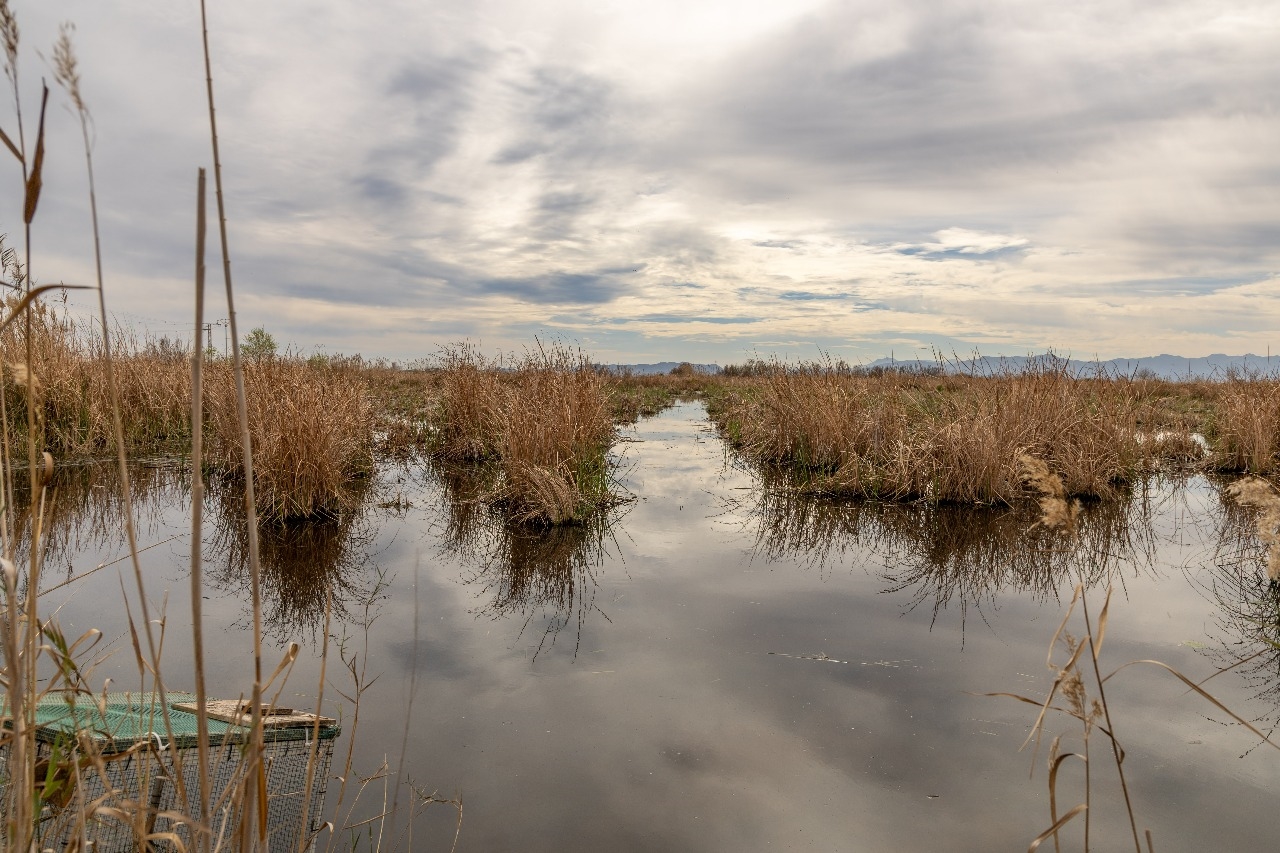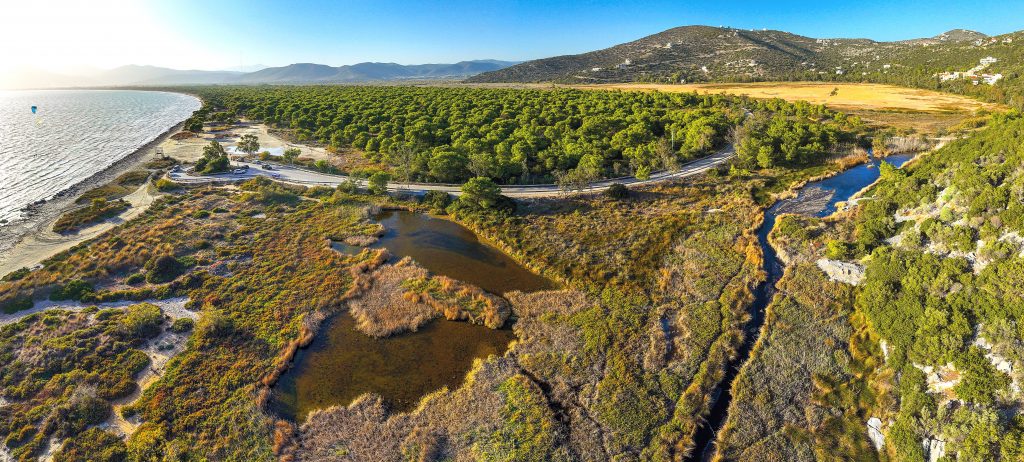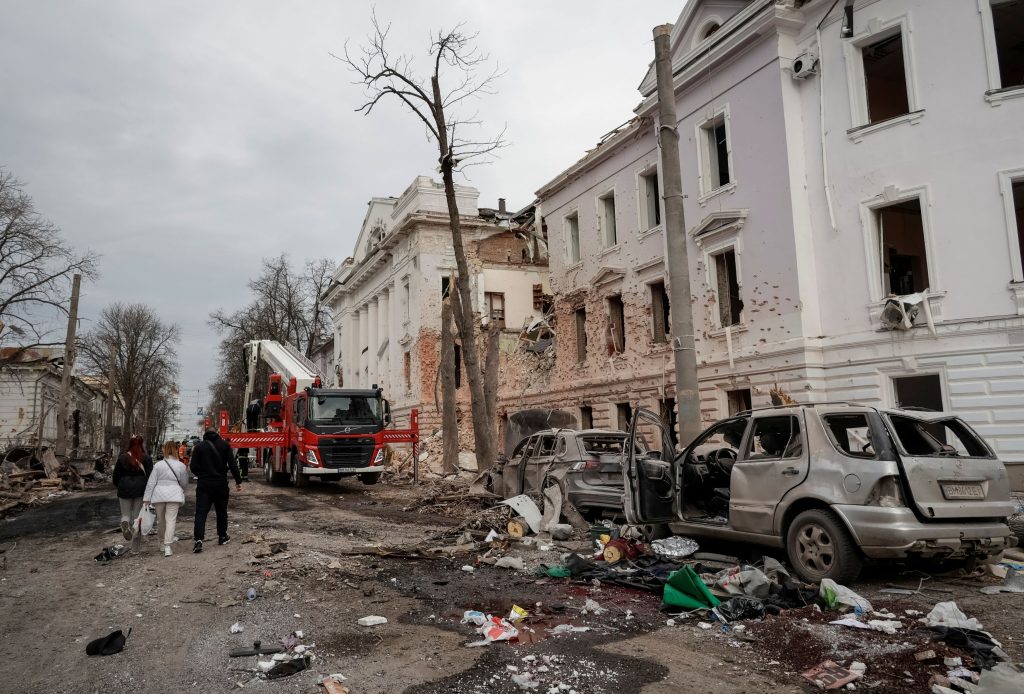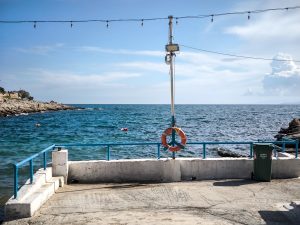The riverbed of Valencia, Spain, was dry, and most of the debris from the deadly October 2024 flood had been cleared when climate experts, scientists, and regional government officials from across Southern Europe gathered in the city last week to discuss climate change adaptation and mitigation measures, including nature-based solutions (NbS).
Last year’s flood was caused by an extreme weather event, known in Spanish as a DANA (Depresión Aislada en Niveles Altos), which unleashed a year’s worth of rain in just hours. It tragically claimed 244 lives, making it the most severe and deadly event of its kind in Spain in the 21st century. The disaster has intensified calls for advanced warning systems for citizens, preventive measures, and enhanced adaptation strategies.
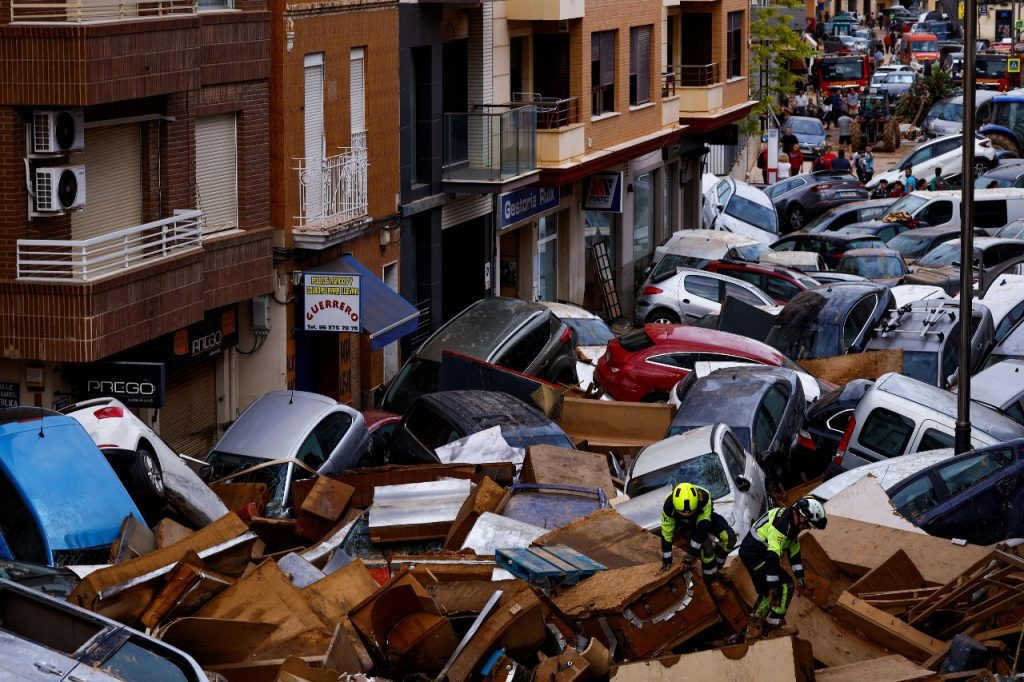
Firefighters walk through piled up cars, following floods in Sedavi, Valencia, Spain, October 31, 2024. REUTERS/Susana Vera
Climate Projections for the Mediterranean
Extreme weather is no longer an anomaly for the Mediterranean; it is a defining reality. “The region is warming 20% faster than the global average, and the Mediterranean Sea is heating two to three times faster than others,” said Samira Khodayar Pardo, Head of the Meteorology and Climatology Department at the Mediterranean Center for Environmental Studies (CEAM), speaking to participants of the EU-funded DesirMED project, who met in Valencia.
Heatwaves and droughts are expected to lengthen, increasing wildfire risks, and autumn rainfall will intensify, resulting in still more severe flooding. Pardo warns that temperatures could rise by over 2°C in the next decade and by more than 5°C by the end of the century. Even if emissions were cut to zero today, the damage already done would persist.
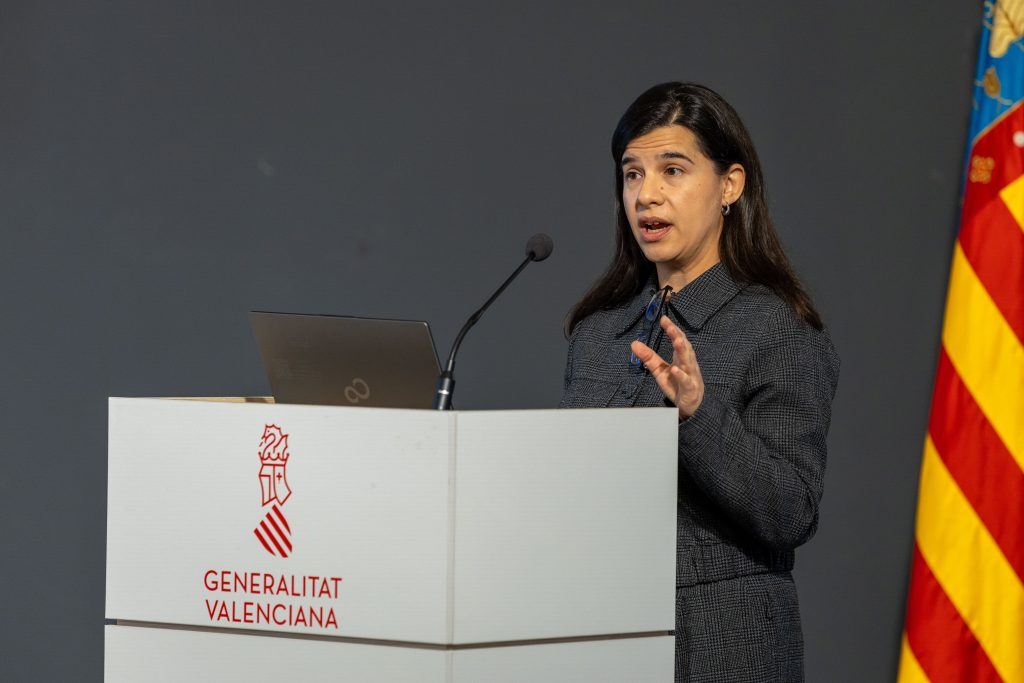
Samira Khodayar Pardo, Head of the Meteorology and Climatology Department at the Mediterranean Center for Environmental Studies (CEAM), speaks to DesirMed participants.
“The window for action is closing,” she says. “Adaptation is essential, and NbS play a crucial role as they support both adaptation and mitigation and therefore resilience to the impact of climate change.”
The Promise and Challenges of Nature-based Solutions
NbS leverage ecosystem services to tackle and reduce the impact of climate change. Examples include using wetlands to filter urban wastewater and reduce flood risk, strategic grazing to remove excess biomass and reduce wildfire risks, and regenerating dunes to stabilize eroding coastlines.
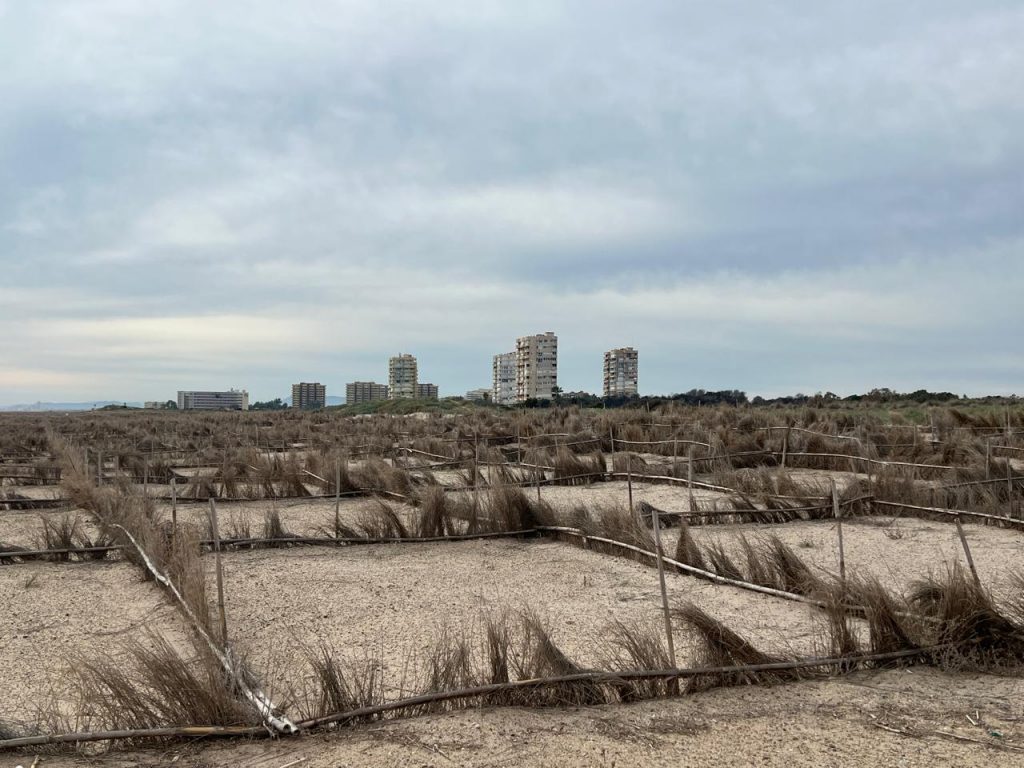
Nature-based solutions-inspired method of combatting coastal erosion as seen in Valencia.
Research increasingly supports NbS as a cost-effective way to prevent wildfires, combat coastal erosion, and manage waste water in the Mediterranean and other parts of the world. However, implementation remains limited due to funding gaps and challenges integrating the solutions into regional, national and EU strategies. Scientists also highlight concerns about the resilience of NbS in the face of ecosystems collapse, as they rely on healthy ecosystem services to function properly.
But even when NbS projects are the best adaptation solution available, bureaucratic hurdles often delay or prevent the granting of permits. “Scaling up Nature-based Solutions isn’t just about having the right solutions—it requires political will and financial investments,” said one expert at the conference.
Valencia’s Constructed Wetlands: A Model for Greece?
High water pollution levels highlight the Mediterranean’s need for more effective urban wastewater management. In the Albufera de Valencia, a Natura 2000 site, constructed wetlands help filter untreated urban wastewater that flows into the region before it reaches the seas. These systems, which use plants and soil to remove contaminants, are energy-efficient, operate at a fraction of the cost of conventional treatment plants and do 80% the job, say experts.
<
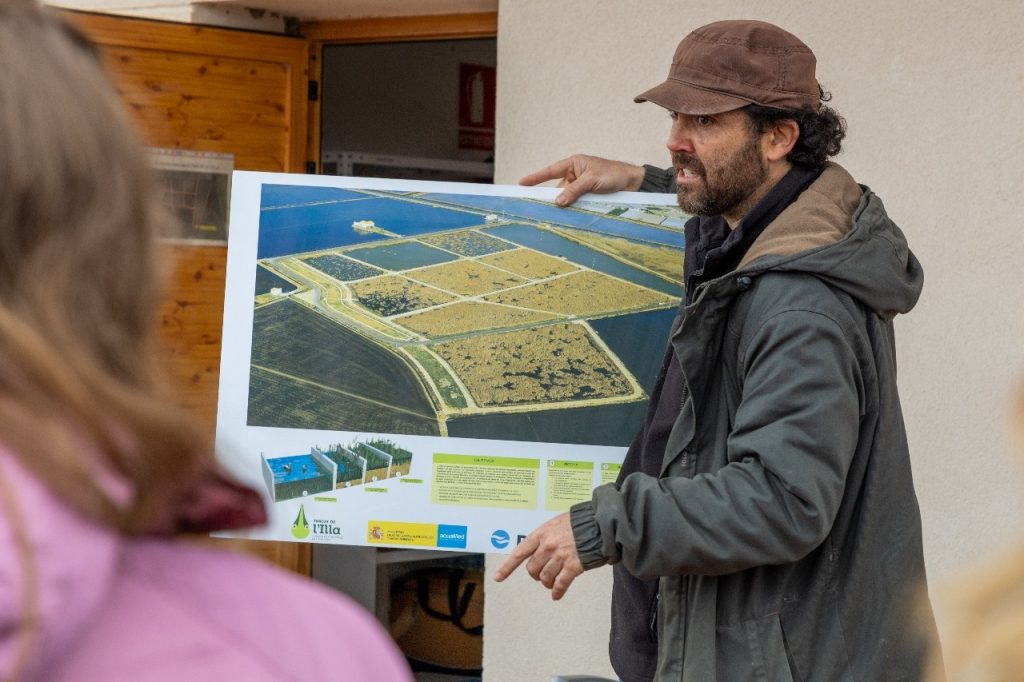
Javier Jimenez, Coordinator of the Tancat de Milia and Tancat de L’Illa Wetlands in Albufera de Valencia, shows an overview of the city’s constructed wetlands.
But constructed wetlands require special care. “Proper and constant maintenance by scientists is essential because we’re working with a living ecosystem,” says Javier Jimenez, Coordinator of the Tancat de Milia and Tancat de L’Illa Wetlands. “It is also important to explain to the local community what you are trying to accomplish so they support your work.”
The efforts pay off, however, because in addition to water purification, wetlands act as flood buffers and quickly become biodiversity hotspots for birds, fish, and all sorts of creatures- unfortunately including invasive species.
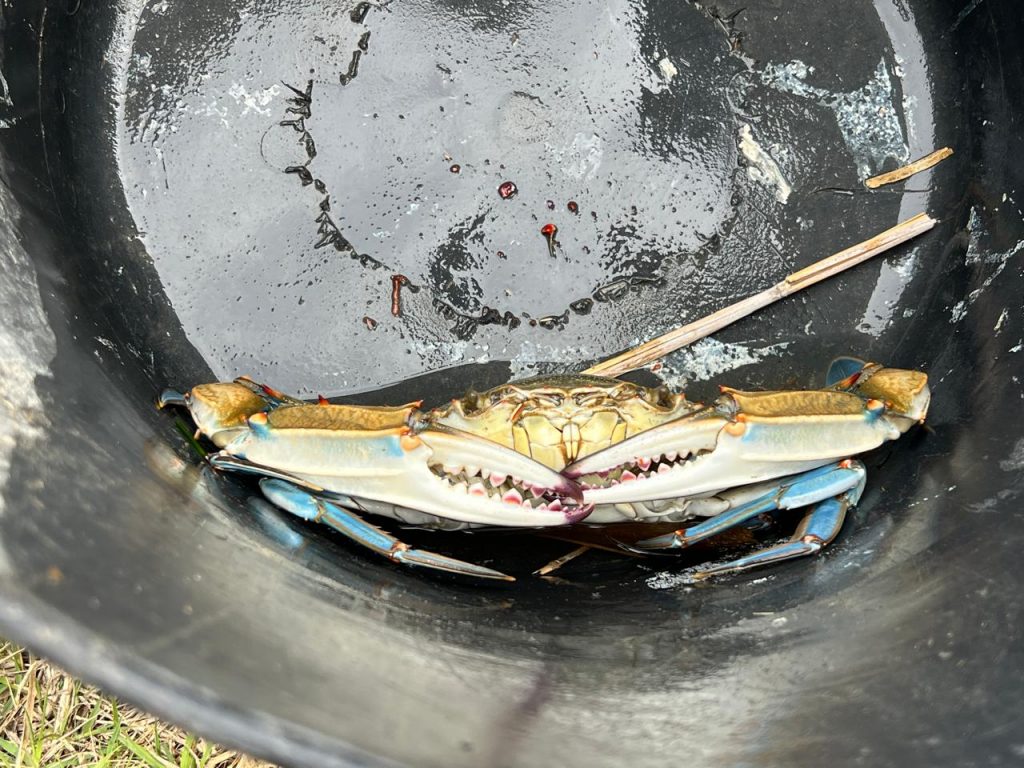
Scientists at Valencia’s constructed wetlands explain that the blue crab, an invasive species, is well established in the area despite ongoing population control measures. Photo Credit: Cheryl Novak
Professor George Sylaios of Democritus University of Thrace is working on similar projects in Greece, but notes that uptake is slow. “The system could be replicated in many regions of Greece, especially in communities of up to 24,000 people,” he explains. However, up-take of the method is slow in Greece and he notes that constructed wastelands are less effective in cold regions.
Blending Tech and Tradition to Prevent Fires in the Med
Wildfires are reshaping Mediterranean landscapes, and experts at the conference stress that more aggressive prevention measures must be taken in the region, particularly as a growing number of fires in the region are convection fires- the most deadly and unpredictable form of a fire. Firebreaks, controlled burns, early detection systems, and strategically placed water cannons in national parks are critical, and there is even a role for NbS.
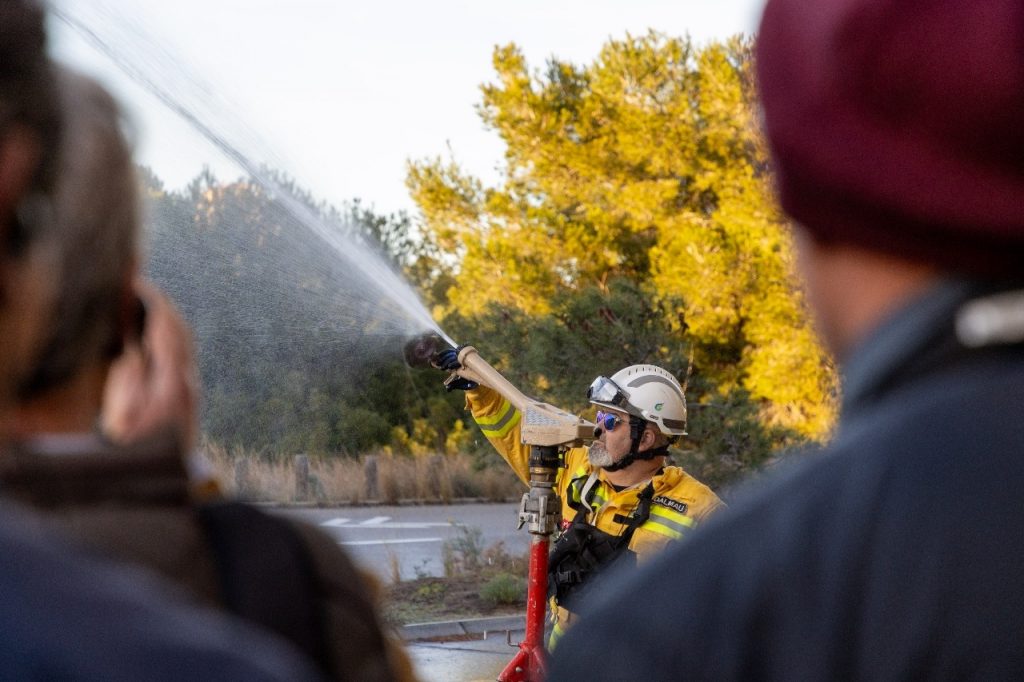
An image of a firefighter from Valencia’s fire department, demonstrating how they protect the national park of Valencia with strategically placed water cannons.
“We can’t keep waiting for fires to happen and then scramble to put them out,” says Mario Romero Servei, head of Valencia’s fire department. “We need to rethink land management and integrate NbS with technology to build fire resilience.” Moreover, citizens need to learn to protect themselves so we can focus on putting out dangerous blazes when they do happen, said another Valencian firefighter, citing Greece’s deadly fire at Mati as a ‘case study’ on convection fires for all fire departments in the Med.
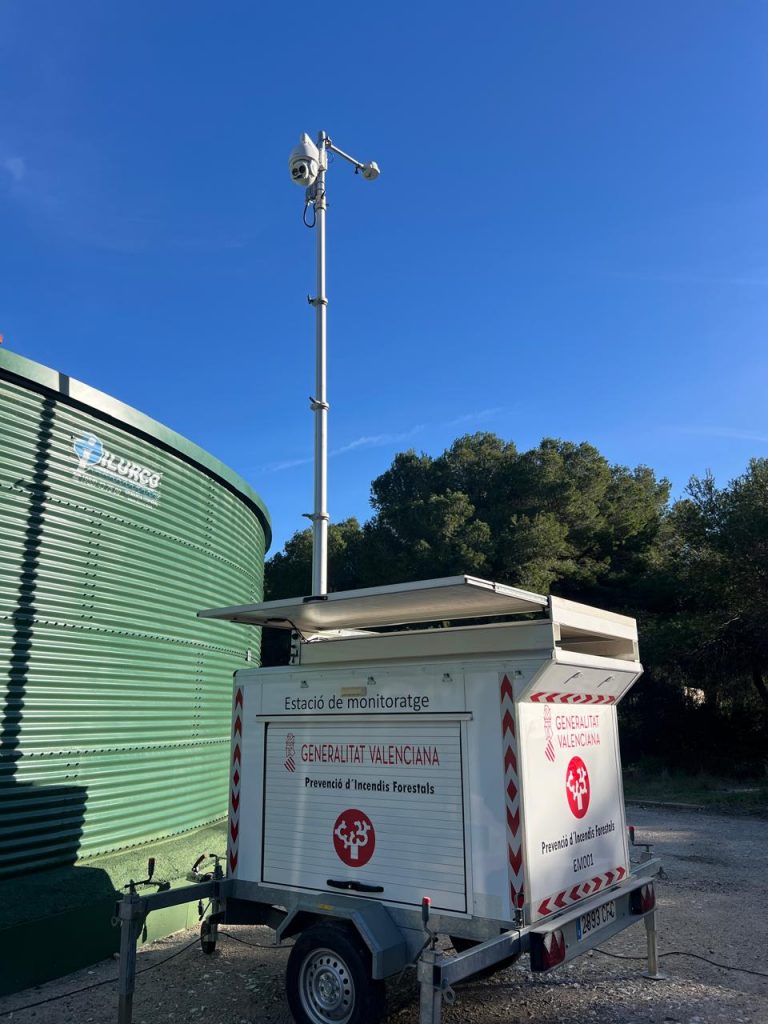
Called “the brain” by Valencia’s fire department, this mobile unit equipped with special sensors is used to monitor the humidity levels of trees at the natural park and assess fire risk. When humidity levels sink dangerously low, the force activates water cannons to douse trees. Credit: Cheryl Novak
In an effort to combat fires and work more closely with locals in Spain, electrical companies are collaborating with shepherds, paying them to graze sheep and goats in areas with dry vegetation near power lines known as biomass—an efficient, natural method to clear flammable brush.
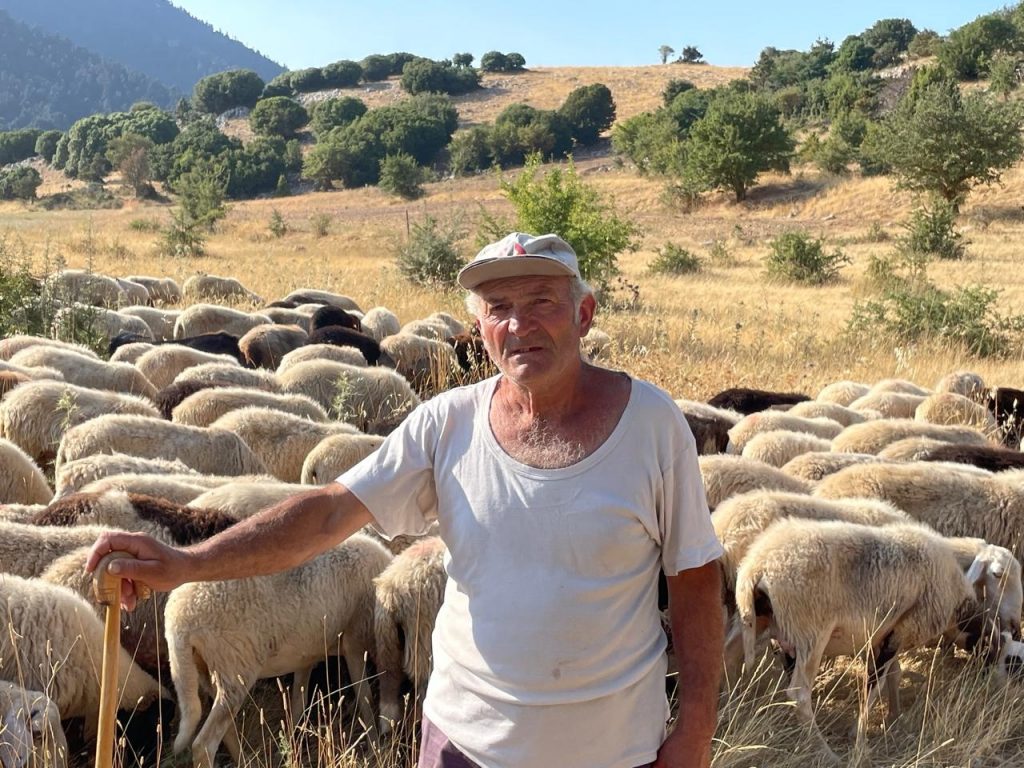
A sheep farmer at Livadi, Parnassos in Greece, tells TO BHMA International Edition that it is getting more difficult to “make ends meet”. Photo Credit: Cheryl Novak
The approach is also helping shephards earn additional income and improve the sustainability of their trade, which is slowly dying Mediterranean tradition. Speaking to a sheep and goat farmer at Livadi, Greece, he said he would welcome the idea to if approached to do the same in Greece.
Dunes & Geotubes: Defenses Against Coastal Erosion
Rising seas and stronger storms are reshaping Mediterranean coastlines, making coastal erosion a growing crisis. Traditional concrete seawalls and building on shorelines exacerbate the problem by disrupting natural sediment flows and degrading natural defense systems like sand dunes. NbS experts advocate for dune restoration and innovative NbS-inspired measures like geotubes: large sand-filled synthetic tubes placed along shorelines or on the seabed to absorb wave energy and stabilize beaches.
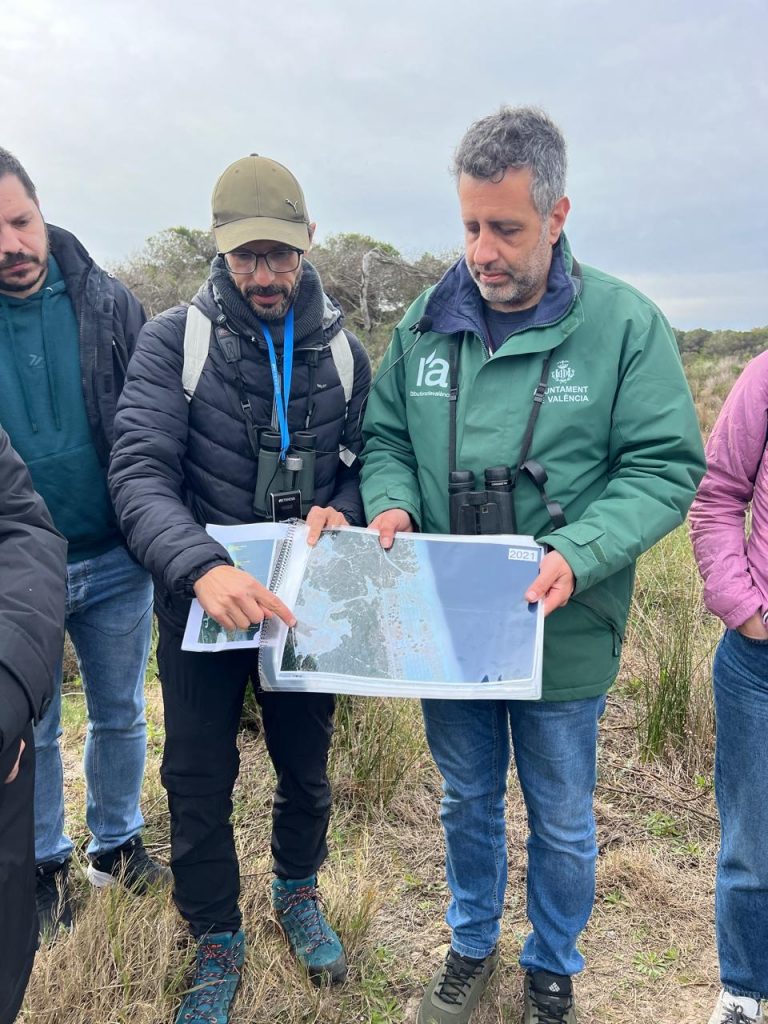
Francisco Collado Rosique (left), an Environmental Management Technician at Devesa Albufera Service, explains how human interventions have contributed to the deterioration of sand dunes over time, accelerating coastal erosion, and discusses the outcomes of recent regeneration efforts.
“Our beaches, dunes, and wetlands are our best defenses, but due to heavy human use and degradation, they sometimes need help regenerating,” says Francisco Collado Rosique, an Environmental Management Technician at Devesa Albufera Service. In Greece, the Natural Environment & Climate Change Agency (N.E.C.C.A.) has reported that simply leaving dead seagrass on Attica’s beaches can significantly aid sand recovery, as evidenced at Schinias Beach.
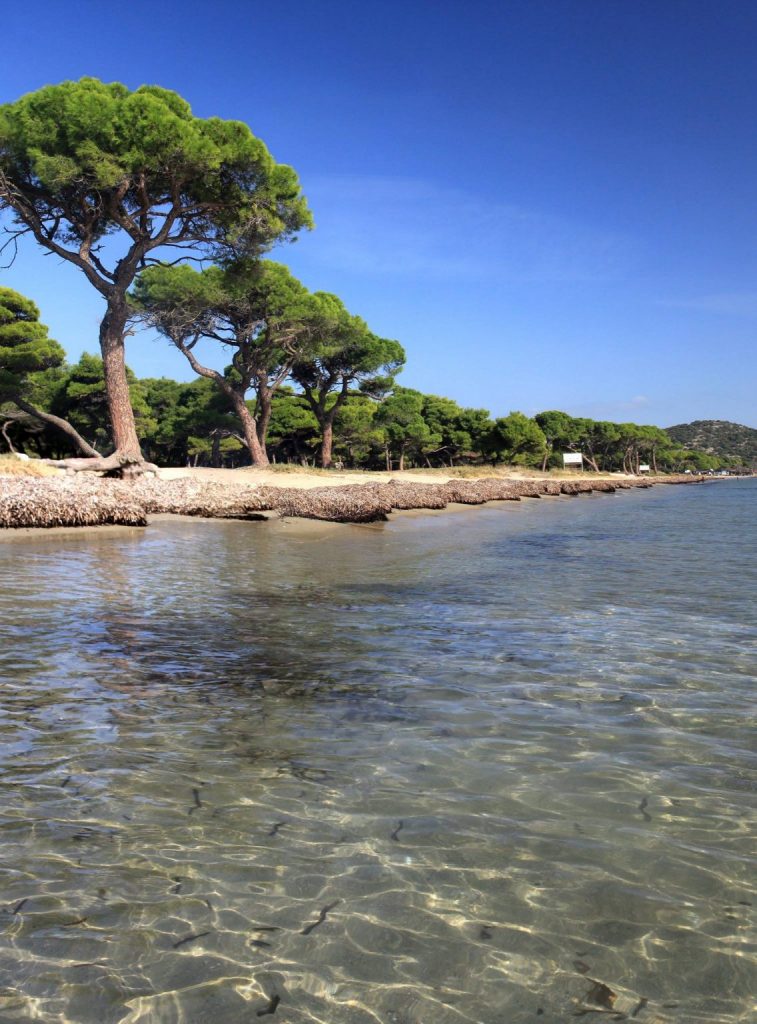
An image of Schinias beach and its use of a nature-based solution- dead poseidonia seagrass- to combat beach erosion.
Spain and Italy have launched pilot geotube projects to test their effectiveness. In Greece, Democritus University of Thrace has proposed a similar initiative, but bureaucratic delays have stalled its implementation. “Coastal resilience isn’t about fighting nature or building cement walls, which have proven ineffective, but working with it,” said one conference speaker.
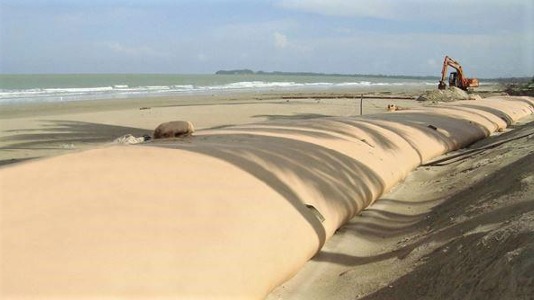
Image of a geotube, used to combat beach erosion.
Scaling Up Nature-based Solutions Across the Mediterranean
Valencia’s climate challenges and NbS solutions serve as both a warning and an opportunity. Constructed wetlands, strategic grazing, and dune restoration are not futuristic concepts—they are existing solutions that have proven to be effective in Spain and in other countries of the Med, and require broader adoption.
However, scaling them up demands more than goodwill. Experts emphasize the need for increased financial investments, improved multi-level governance, and greater awareness of NbS. While the EU’s Horizon Europe program supports NbS, national governments must integrate these strategies into regional policies rather than treating them as isolated pilot projects.
The key takeaway from the conference was clear: the Mediterranean must urgently shift from crisis response to proactive prevention and science-based adaptation. Droughts, fires, floods, and coastal erosion are not isolated events—they are symptoms of a region in transformation. The question is no longer whether existing infrastructure is sufficient—it has already proven inadequate—but whether the people of the Mediterranean can learn to work with nature rather than against it to safeguard the region’s future.
